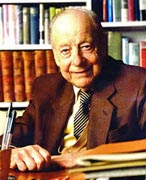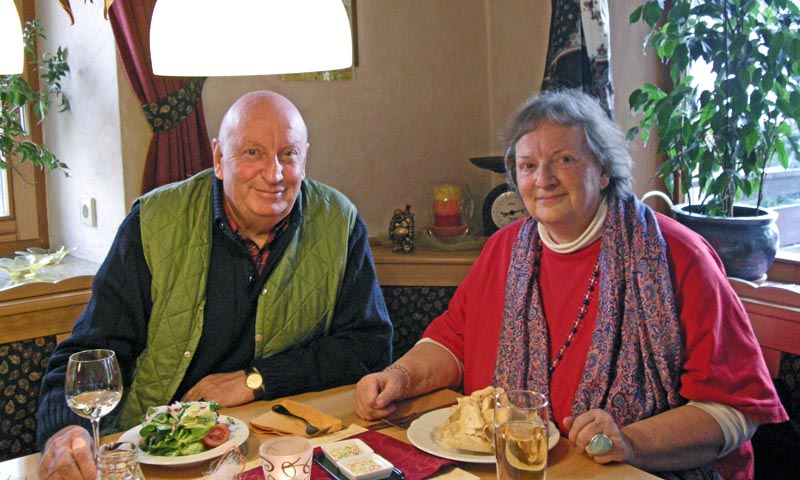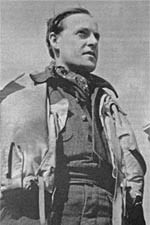|
Biographical Log of Michael Furstner - Page 157
08 | 09 ||
2010 :
Jan |
Feb |
Mar |
Apr |
May |
Jun |
Jul |
Aug |
Sep |
Oct |
Nov |
Dec || Page :
Previous |
Next
The Martinshof Story -
A Philosophy of Happiness -
Life Awareness -
Maps & other Text series
Most Recent -
Next -
Previous -
Page 1 -
Photos -
Index -
Topics -
MP3s -
Jazclass Links
Saturday - Monday, May 1 - 3 2010
(diary)
 I am in a frenzy reading through volume after volume of Winston Graham's
marvelous Poldark Series. The complete series consists of 12 volumes of
which the Palmerston Library has seven on their shelves, so I have requested they order
the other five to complete the series.
I am in a frenzy reading through volume after volume of Winston Graham's
marvelous Poldark Series. The complete series consists of 12 volumes of
which the Palmerston Library has seven on their shelves, so I have requested they order
the other five to complete the series.
They are historic novels set in
Cornwall during the French revolution and the Napoleonic wars (1790-1820). Graham
vividly describes English country life of those days and the saga of the Poldark family.
Once you start on it you just can't put the books down.
I did read most of the
volumes back in the 1980s when studying music in Adelaide, but during my travels lost
all the copies I had.
Most Recent -
Next -
Previous -
Top -
Page 1 -
Photos -
Index -
Topics -
MP3s -
Jazclass Links
Tuesday, May 4 2010
(diary, WW2)
 It is my sister's birthday today. So "Happy Birthday Wivica, I
hope you have a nice day." I suspect she will be off with a friend to the
Bodensee for the day, perhaps to the flower island of Mainau and have some
"Kaffee und Kuchen" there.
It is my sister's birthday today. So "Happy Birthday Wivica, I
hope you have a nice day." I suspect she will be off with a friend to the
Bodensee for the day, perhaps to the flower island of Mainau and have some
"Kaffee und Kuchen" there.
To break my marathon read of the Poldark saga I have started on a most unusual history
book : Forgotten Voices of the Second World War.
Compiled by author Max
Arthur it is a collection of eye witness accounts of soldiers, sailors, airmen and
civilians recorded over the past 30 years and stored in the Sound Archive of the
(British) Imperial War Museum. The stories range from hilarious to surprising to
gruesome. To give you a taste of it here are some abbreviated ones of the lighter
variety.
|
Stanley Allen : Recruit, Royal Navy, 1939
A petty officer said to me "Here, you long bastard, you come and
stand over here." I was brought up in a church home, and of course he must have
seen my face, and said, "Oh, don't take any notice, Lofty. If we
calls you a bastard, we loves you."
 Peter Brothers : Flight Lieutenant, RAF, 1940
Peter Brothers : Flight Lieutenant, RAF, 1940
When we went into action for the first time, on the 10th of May 1940, we were told to
ground-strafe an airfield in Holland, which had been captured by the Germans.
On
arrival there we found to our surprise the airfield covered with burnt out (German)
Junker 52s troop transport aircraft. Then we found one undamaged aircraft parked between
some hangars. We set that one on fire and came back to base.
It was some months
later before we discovered that the Dutch had recaptured the airfield just before our
arrival. They'd destroyed those aircraft on the ground, leaving one in which to escape
to England. And that was the one we set on fire.
Corporal Edgar Rabbets : Sniper, Northamptonshire Regiment,
1940
There were some Belgians, who were ploughing a field down two sides so that the
corner pointed towards our headquarters. This was for the benefit of enemy aircraft, who
duly arrived and plastered our headquarters out of existence. We lost our first colonel
through that. It was somewhere between the Oudenaarde ad Ypres areas. The ground had been ploughed in a form
of an arrow, aiming straight at our headquarters.
No farmer ploughs his land that
way. After that, when I noticed anybody ploughing wrongly, he got shot. I shot two of
them who were doing that. They knew what they were doing - I knew what they were doing -
so there was no need to say anything.
James Merrett : Ground gunner, RAF, 1940
I went in the pub the first night I came back from France (Dunkirk), and the landlord
said to me "Oh, we thought you'd been took prisoner." And
old Bill, the postman, took one look along the bar. He said. "I
told you if there's only one bugger come back it'll be him."
Eric Hill : eight-year-old living in Southampton,
1940
One night when the air-raid sirens blew we had to dive for cover. I remember we were in
the air-raid shelter for three, four hours until we got the all-clear to come
out.
When we came out the high street was running with melted margarine and butter
because they'd hit the cold storage. My mother and most of the women just grabbed
handfuls of this butter and rammed it into their bags.
|
Most Recent -
Next -
Previous -
Top -
Page 1 -
Photos -
Index -
Topics -
MP3s -
Jazclass Links
Wednesday, May 5 2010
(diary, WW2, Garand rifle)
 On the 4th of May the Dutch remember their dead from World War 2 (and presumably
now too those soldiers fallen in more recent conflicts). National flags would fly
half mast and there would be one minute silence at 6 in the afternoon. I am not sure
whether that still is the case.
On the 4th of May the Dutch remember their dead from World War 2 (and presumably
now too those soldiers fallen in more recent conflicts). National flags would fly
half mast and there would be one minute silence at 6 in the afternoon. I am not sure
whether that still is the case.
But on 5 May we celebrate Bevrijdingsdag (the day of liberation in 1945 from the
German occupation). On this day both Gorssel's primary schools would march to the Gorssel Town hall, waving orange
banners and red white and blue flags, then sing National songs to the Lord Mayor, who
stood on the first floor balcony, representing our Queen.
 I was a very skinny lad in those days, prone to easy fainting as a result of
bloedarmoede (low red blood cell count, due to the long poor wartime diet).
I was a very skinny lad in those days, prone to easy fainting as a result of
bloedarmoede (low red blood cell count, due to the long poor wartime diet).
Standing
there singing in the Town hall square, closely surrounded by other school children, I, on
at least one occasion, fainted and fell over. I fell against a friend in front of me who
thought I was joking, so he pushed me back to another child standing behind me. So I was
shoved around amongst my friends until I finally fell to the ground. An embarrassing
experience to say the least.
Over the years I grew stronger and regained a healthy blood count, but many years later
(in 1963-64) when doing my basic training in the army I was still very
apprehensive about fainting at parades when we had to stay at attention and "present
arms" (holding a heavy Garand rifle) for considerable periods of time.
Fortunately I never fainted on any of those occasions.
As recruits we were rather
fond of our Garands. I always "slept" with mine during overnight field exercises,
keeping it in my sleeping bag, so that it would be dry and clean for the inevitable
inspection next morning.
The Garand was quite tricky to load, and it was easy to hurt
one's thumb when pushing ammunition into the spring loaded firing chamber, and I did end
up with a blue thumb as a result of it, a Garand thumb as it was called. Once at
the Artillery Officers School we changed over to the Uzi, a much easier to take
apart and clean light machine gun, dead easy to load. I had no problems with that one.
Comments -
Most Recent -
Next Page -
Previous -
Top -
Page 1 -
Photos -
Index -
Topics -
Jazclass Links
Copyright © 2010 Michael Furstner
|




 I was a very skinny lad in those days, prone to easy fainting as a result of
bloedarmoede (low red blood cell count, due to the long poor wartime diet).
I was a very skinny lad in those days, prone to easy fainting as a result of
bloedarmoede (low red blood cell count, due to the long poor wartime diet).